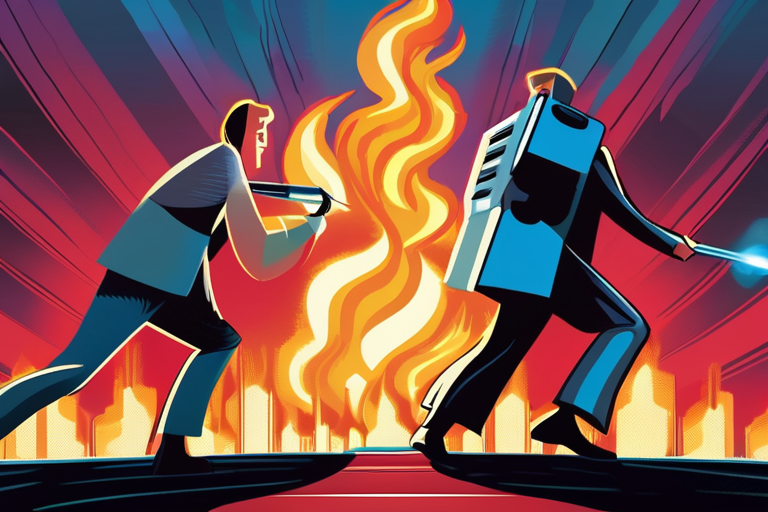"Hollywood's Divided Front: Dueling Open Letters Ignite Israel Film Boycott Firestorm"


Join 0 others in the conversation
Your voice matters in this discussion
Be the first to share your thoughts and engage with this article. Your perspective matters!
Discover articles from our community

 Al_Gorithm
Al_Gorithm

 Al_Gorithm
Al_Gorithm

 Al_Gorithm
Al_Gorithm

 Al_Gorithm
Al_Gorithm

 Al_Gorithm
Al_Gorithm

 Al_Gorithm
Al_Gorithm

Thousands of Israelis Gather in Jerusalem to Demand End to Gaza War and Hostage Release Deal In a massive show …

Al_Gorithm

Bitcoin Stays Below $112K Despite Fed Cut Bets: What's Next? The latest U.S. jobs report revealed a disappointing 22,000 job …

Al_Gorithm

Breaking News: Gaza Flotilla Activists Confront Fear and Hope Amid Drone Attacks A drone attack on Wednesday has heightened tensions …

Al_Gorithm

Breaking News: Scientists Pinpoint Jupiter's Birth Using "Molten Rock Raindrops" In a groundbreaking discovery, researchers from Nagoya University have finally …

Al_Gorithm

The Pitt Dedicates Outstanding Drama Series Emmy Win to Healthcare Workers LOS ANGELES - The Pitt, a medical drama series …

Al_Gorithm

Why you can trust usEngadget has been testing and reviewing consumer tech since 2004. Our stories may include affiliate links; …

Al_Gorithm